– Kathleen Weber – 1944 – 2020 RIP
From Tartine to Hart Bageri and Green Rhino in Mexico: Baker Richard Hart’s Journey to Becoming a World-Class Baker
This is part of the story of Richard Hart and Intuitive Baking.
Legends are not born; they are forged through obsession. I had never met anyone before or since the summer of 2016 who connects to bread in the same way I do, as though the bread is a part of them. It’s a connection to bread and baking that I find almost impossible to articulate. Still, perhaps the feeling closest is love. As the word love itself has so many connotations, one might mistake this for something it is not. It’s about catching a glimpse of myself in someone else’s understanding—a rare reflection that mirrored my own connection to bread and the extraordinary lady, Kathleen Webber, who supported the work it took for the baker Richard Hart to become, in my opinion, one of the best bakers in the world.
Richard Hart began his journey as a baker at Della Fattoria before rising to prominence at Tartine Bakery, where he served as head baker for seven years. In 2018, Richard partnered with René Redzepi of Noma to establish Hart Bageri in Copenhagen, Denmark and has since gone on to open Green Rhino in Mexico and write his first book, which is A comprehensive guide to artisan bread with more than 60 recipes putting much of Richards expertise and experience into the hands of bakers who he inspires.
In 2016 I was at Tartine Bakery in San Francisco, and met head baker Richard Hart. It was unforgettable, offering a completely different perspective on baking compared to the French bakeries and the college environment where I had first learned to bake sourdough. I particularly enjoyed being in a bakery with other women, which felt refreshing in an industry where female bakers were once so rare. Richard was intrigued when I mentioned how unusual it was to see women baking in the 1980s in France and 1990s in the UK, telling me that it was a woman who had been his greatest inspiration in bread making. “You have to meet her,” he exclaimed. “She had an incredible influence on my love of sourdough, and she’s amazing.”
Like me, Richard has an obsession with bread.
A few days later, Richard took me on a tour of the bakeries he loved and had worked in, and I learned about porridge bread and how much of Richard’s approach to bread wasn’t taught at Tartine. Like me, Richard has an obsession with bread. I had met someone with the same deep connection to bread and recognised the intuitive and deliberate focus of someone who responds the same way as me to the touch, smell, feel, and taste of bread and that it was as much part of himself as breathing. He explained how before he was invited to head up the team at Tartine, he had first had to prove that his bread was as good as Chad’s. ” I wanted it more than anything,” he explained. ” I had tasted this bread, and it fucked me up.”
Like me, Richard had learned by obsessively baking until he “nailed it ” while working at Della Fattoria.
He wasn’t wrong about Kathleen. She was a strong, dynamic woman with a vision, and she absolutely adored Richard. I remember watching her eyes light up whenever she talked about him, as she recounted stories and anecdotes a time that he worked there with an affection and warmth that was clear she considered him more like a son than a head baker.
More about Baker Richard Hart
Richard Hart began his journey as a baker at Della Fattoria before rising to prominence at Tartine Bakery, where he served as head baker for seven years. In 2018, Richard Hart partnered with René Redzepi of Noma to establish Hart Bageri in Copenhagen, Denmark. Known for its exceptional artisan bread and pastries, Hart Bageri quickly became one of the world’s most acclaimed bakeries, expanding to multiple locations. Celebrated baker Nancy Silverton called Hart Bageri “the best bakery in the world” in her recent baking book. Richard Hart’s dedication to craftsmanship and innovation continues to set the standard in modern baking.
The Woman Who Influenced Baker Richard Hart
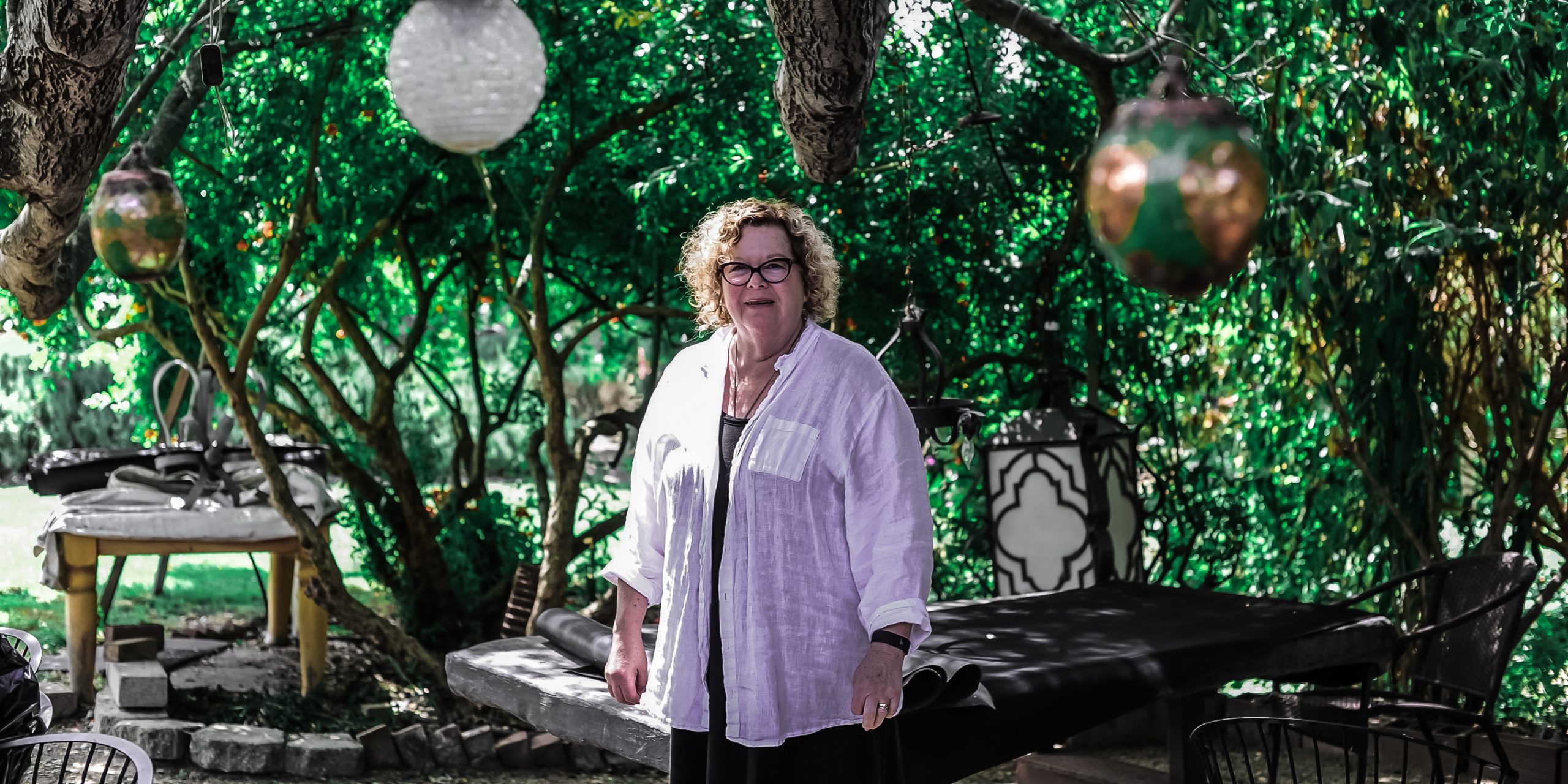
Summer 2016 – first published in July 2016 I wrote this feature about Kathleen on my return.
– It has taken me some time to write this post, but some stories won’t leave me alone, and this one more than most…because I fell in love with a bakery on the other side of the world. I never thought that there could be somewhere else with all the elements of my village in the Dordogne, but a visit to Della Fattoria in Sonoma was a mirror of the world I grew up in, and I made a connection to another baker who has influenced my work ever since. I wasn’t the only one.
Richard Hart: Shared Beliefs in Baking
Sometimes things go around my head for months – like a song that you hum all day, the visit to this bakery has stayed with me. I am still processing finding a place that felt as though I was back home in my village in France. Every element was there, from the soft figs on the trees to the same bright orange and yellow nasturtiums that tumbled along the paths; a cat curled up in the chair outside the bakery, the familiar smell of freshly baked bread and eucalyptus wood burning. A cockerel crowing, dogs running about, crickets singing and an unimaginable, unmistakable atmosphere and heat that felt exactly the same as under the dry sunshine of summers in Nadaillac. But what was even more extraordinary was meeting a woman who instantly reminded me of the lady I call my second mother, Noel.
Kathleen Weber, has that same knowing look and is the woman behind Della Fattoria– whose name means ‘from the farm’ – one of the most renowned bakeries in the world. She eludes warmth, strength, determination, humour, knowledge and a deep understanding of life, all within a few moments of meeting her in her amazing kitchen. It’s an extraordinary place with an eclectic collection of kitchen artefacts including an apothecary dresser used as a kitchen cabinet, bread books from all over the world, copper saucepans, aromatic herbs, spices, and the unmistakable warmth of a mother’s kitchen. Even the dogs and the smell of wood smoke were echoes of home.
The bakery itself is next-door to the kitchen in the barn, a beautiful, shabby, building that’s lived-in and loved, full of movement life and proving bread. We stood a while chatting and I asked Kathleen about how this incredible bakery started
She has been baking bread all her life but the turning point came when some friends gave her Carol Field’s The Italian Baker. Though there are no entirely naturally fermented breads in the book, she was instantly drawn to recipes that used a biga (a pre-ferment used in many Italian breads). She described to me how this really lit her on fire – how the biga gave the bread a flavour and a shelf life she’d never experienced, and how she discovered fabulous, crusty breads that she could bake straight on the hearth rather than in a tin.
From this, she quickly figured out how to bake breads with no yeast at all. Having always thought that yeast was a separate ingredient, she told me how she found it hard to understand that everything she needed to make amazing bread was just in that little piece of dough, so she would nervously watch and fuss and pray over it, amazed every time at what she produced. She was just so delighted that it had actually worked!
Kathleen said it all felt like a fairytale; like she was spinning straw into gold, because she was taking the most humble ingredients – grains, water and salt – and turning them into the most majestic thing, the thing that people call ‘the staff of life’. The thing that sustains us; that people have fought wars over. Every baker I know has experienced this same incredible feeling of awe and wonder.
Like me, she knows that because you’re using only these three such ordinary ingredients, you have a duty to seek out the very best ones you can, which means organic flour, the best salt you can find, pure water and – most importantly at Della Fattoria – passionate bakers. Because as Kathleen puts it, “you can’t do this with shmucks!”
Having fallen in love, she started baking bread compulsively – she couldn’t stop. At the time she was working in retail selling clothes; she would make a starter in the morning before leaving for work and would then come home and bake bread all night to take into work the next day. She was giving away her breads at every opportunity and soon she stopped selling clothes and began doing a bread round, delivering bread to a list of fourteen people.
Her son Aaron was working as a chef at the Sonoma Mission Inn, where head chef Mark Vann was the son of a baker. He was really curious about what Kathleen was doing so he asked her to bake some bread for an event and it sold out instantly. After Kathleen’s husband Ed built her an Alan Scott oven on their deck for her 50th birthday, things started to go crazy. Mark asked her to start baking for the restaurant: 40-60 loaves during the week and 80-120 on weekends and all they had was a 20-quart Hobart mixer! So, aged 50 she was working all day and all night, sleeping for just two hours at a time, but she says that it just never felt like working because she was doing exactly what she wanted to do. “Work is something you do when someone makes you go,” she told me, “this is different. This is life.”
Aaron’s girlfriend was also working at the Sonoma Mission Inn but went to interview at The French Laundry, which was being remodelled. She asked Thomas Keller what bread he was using and when he told her, she responded with “Oh, maybe you’d like some really good bread then.” Thomas was a big name even then, so it was a pretty bold move to say the least! Kathleen took him as a basket of bread and of course, he loved it, so they went on to worked on some recipes together and he kick-started her career. Things evolved and grew, with more and more restaurants wanting her bread. It was just crazy – they were working from their house, so Della Fattoria wasn’t even listed in the phone book, but their breads were listed in the best restaurants!
I asked Kathleen what she believes makes a good loaf and she told me that it’s a beautiful crunchy crust and a lacy, chewy, interior with lots of flavour. She likes it more nutty than sour, which is why she hates the term sourdough – because it isn’t so much about the sourness as the depth of flavour – an incredibly complex, multi-layered thing. Without the fermentation, the flavour isn’t adjustable which means you just get a flat, one-dimensional taste, but as soon as you have something that’s naturally fermented it brings out all the different complexities in the flavour. “It makes something that tastes of the place,” she says, and there isn’t a more perfect definition than that.
Bread will taste different even if you take one person’s dough and bake it elsewhere, which is why Kathleen is more than happy to share her recipes and her starter. In time, the starter will stop being your starter and will become someone else’s starter and, like me, she believes that the more you put your starter and your bread and your information out in the world, the better – because we all need good bread. There’s nothing more really to say because, for me, her parting words were just perfect. “We don’t need mass-produced food, we need food that’s hand-made and close to home; food that’s regional and has some tradition in it. Amen!”
I felt so settled at the table, Richard to my left and Kathleen to my right surrounded by what was essentially familiar, a bohemian French atmosphere. I wanted to freeze that moment it was so beautiful and hold on to that easy laughter and the love, grace and celebration of the life of a baker. As I walked back to the car, past the cat, and the hens, stepping over the nasturtiums that tumbled wildly across the path I remembered that distance makes the heart long for lost loves and grows fonder in absence. Returning will be the sweetest part.
Resilience During Crisis: Lessons from Della Fattoria
In October 2017 I did go back to San Fransisco.
Richard Hart and I share a belief in sustainable, slow-fermented bread as a way to nourish communities and enhance health. It is a belief that runs in our veins and we often chat and I’d been explaining how much of my work is spent researching, writing, and teaching, and I felt I had lost touch with what it meant to be a baker. As I wrote my Doctorate in the UK, it felt as though my hands started to forget the rhythm and tension of the dough. Teaching one person and time was like only ever doing one move of the same dance over and over. I needed reminding of what it was to be in the heart of a bakery. I was asked to a keynote speaker in San Francisco at a conference, and Richard encouraged me to take the time to work at Della “It’s boot camp,” he said. “Go, you’ll love it, and Kathleen will be so happy to see you again .”
It not an accident that Richard is one of the world’s best bakers. He follows his intuition and so I followed Richard Hart‘s advice, but things didn’t quite go according to plan. I did get some serious baking in, and I stayed in a cottage next to the bakery, but I didn’t make it to the conference. after a few days of baking I woke to the smell of smoke and the reddest dawn I’d ever seen. There was an eerie silence. California was burning to the ground. The conference was cancelled as the hotel the conference was set in was just one of the places that burned to the ground in the devastating fires that ensued.
Everything burned. Homes burned, churches, shops, schools, crops, and entire communities burned. The sky was dense, and the air was acrid. Every single person in the bakery feared for their home. I sat with Ed and Kathleen, with my flour-covered apron, quietly eating supper, watching the news as everything around us burned. 35,000 acres burned, and although Petaluma was protected by a river to one side, the fires got closer and closer. “What can I do?” I asked.
“Keep baking, Vanessa. People need bread. They need to eat.”
She sent me each day to the local refuge with my hire car stacked with bread to give to the people who had nowhere else to go. I remember being scared, and exhausted, and having a sense that everything the people around me loved was being destroyed.
Baking is about Supporting Each other.
I kept baking. The team at Della kept me busy and what Kathleen showed me was what it meant to be resilient to be at the centre of a community and in the years that have followed I have often worked with Richard Hart, taking him to meet the flour mills I work with, and introducing him to Gabrielle Bonci, and working with him in France, Italy, Denmark and the UK. He always credits Kathleen as being a woman who inspired him.
These are the words I wrote as I left the bakery .. “It’s been both surreal and emotional working at Della Fattoria .. this gorgeous ranch surrounded by fig trees, lemon trees, pomegranates, flowers, livestock and an amazing bakery and family, at the heart of a community that has literally been living life on the edge of losing their homes, schools, businesses, farms, vineyards, churches and cultural buildings to fire. Thankfully this beautiful town has made it through safe so far. Kathleen Weber has been incredible. She has kept her team calm and focused, supporting the people who have fled their homes with bread As surrounding villages and towns have burned … all around are families displaced and unimaginable stress. Kathleen’s determination of strength, kindness, resilience, generosity has united her community & family in a time of crisis. Being here has been hard, but it has given me a unique insight into what it really means to be a baker .. it is not about applause or big holes, it is about about nourishing and supporting each other.”
January 2020 –
It is with great sadness that I learned today that, surrounded by her family in the place she loved the most, Kathleen passed away.
This post is dedicated to the many bakers Kathleen inspired. To her family. To the people who loved her, and to the people she loved. It was a privilege to know Kathleen and her family and to bake at Della. She inspired. So I will leave you with Kathleen’s my favourite things she said. “you can’t do this with shmucks!”
“Work is something you do when someone makes you go,” she told me, “this is different. This is life.”
Vanessa Kimbell’s collaboration with Richard Hart
This is life… I aways am grateful to Richard Hart for the foreword in my Sourdough School Book and the introduction to Kathleen. I loved that he is so generous and shared so much of his approach to baking with me. He was absolutely right about Kathleen and I getting along together, and I still hold her determination as an example. I loved that her eyes literally lit up with such pride and love whenever she talked about Richard. What an extraordinary and beautiful friendship. When I think about things now, and the work we both do, I think each loaf of bread we bake, the bread we share is part of the legacy of Kathleens love of bread. A shared love, passion and amazing understanding of what being a baker, is something that needs no words, it just is.
Vanessa & Richard Have A Shared belief in What it Means to be a Baker.
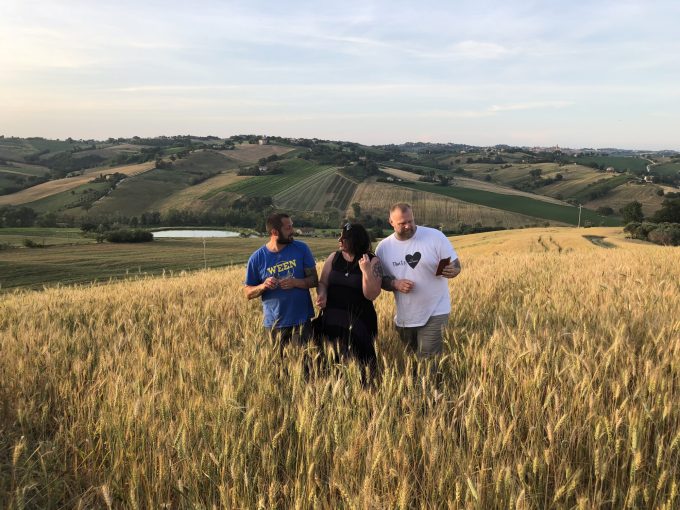
I have worked with Richard many times over the years. He is funny, kind, and brilliant. He has always had an interest in my work on nourishing those he loves and often tells me I ” geek” him out. That always makes me laugh. But he epitomises what it means to feed people great bread that is not just amazing but also supportive of the community. He also has a personal interest in the gut and how it can support health, and how bread can be part of a cancer-protective diet that helps the people you love.
Richard Hart’s Book Intuitive Baking
I encourage you to read Richard’s new book, Richard Hart Bread: Intuitive Sourdough Baking. It is a beautiful and amazing book with the best of Richard’s stories and recipes, and it beautifully showcases the years of work and baking
Kathleen’s strength and spirit will never die. Every time Richard and I bake, we bring a piece of her love to bread to every loaf we bake.
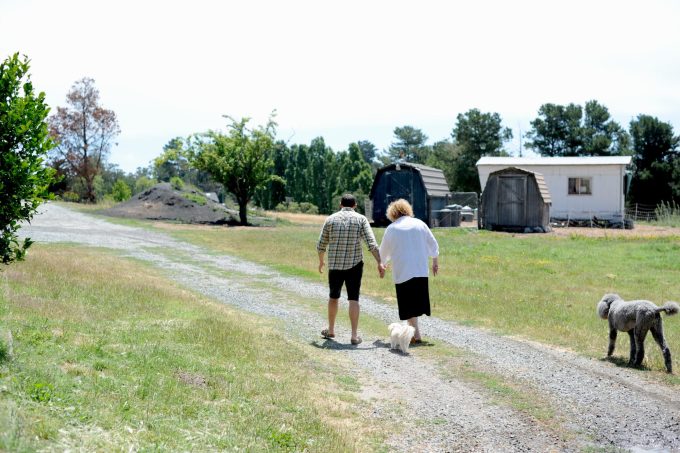
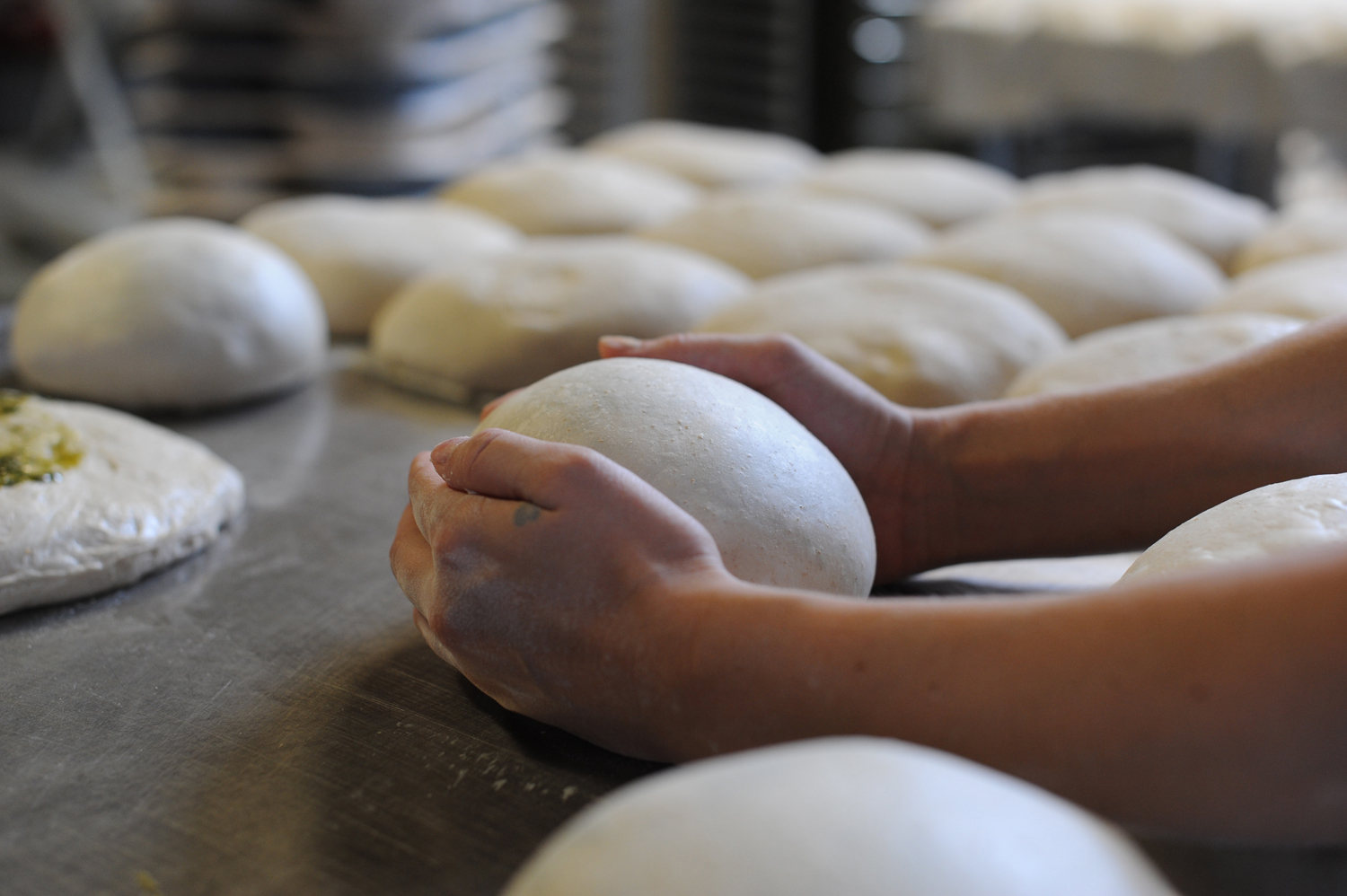
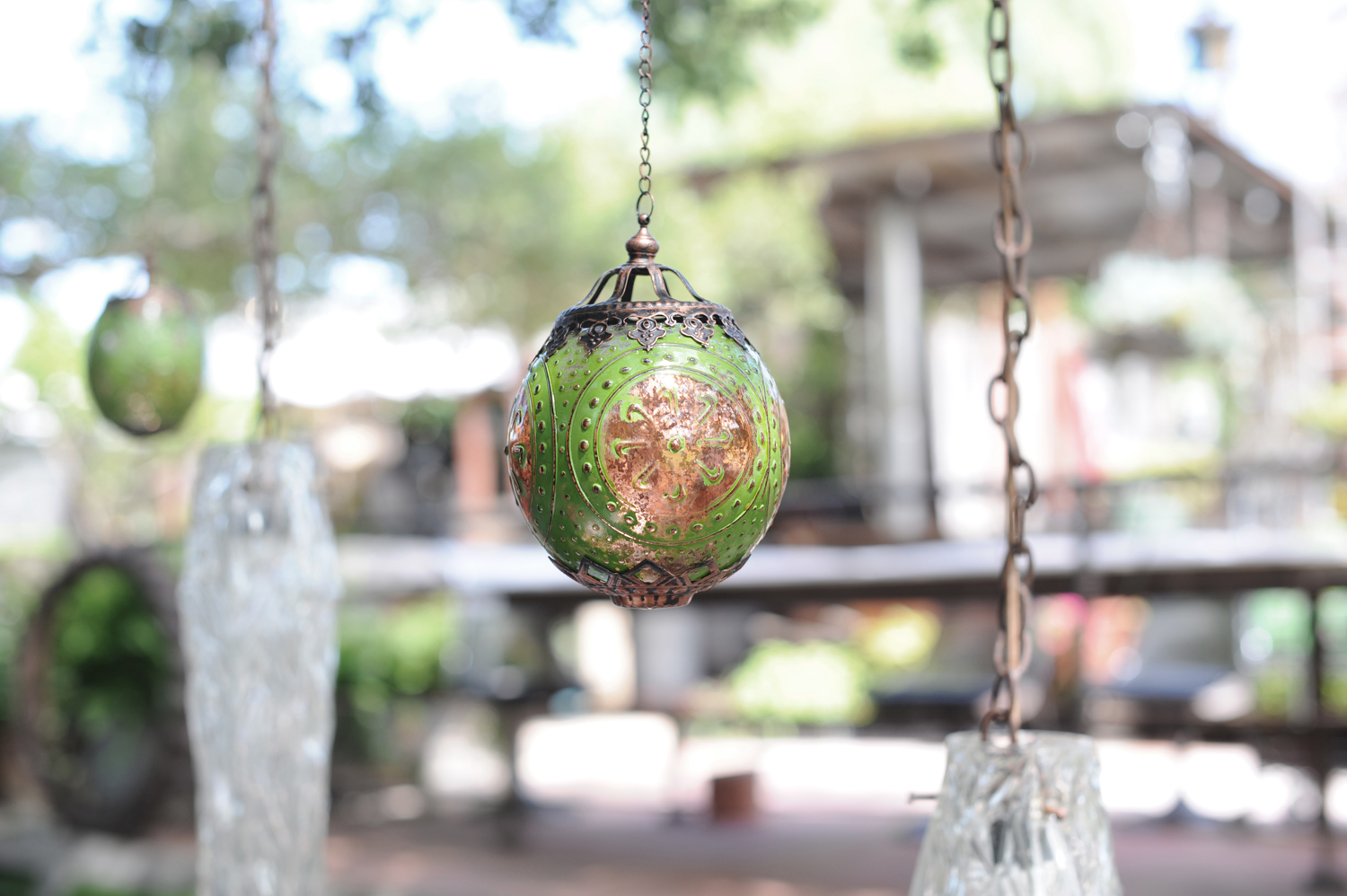
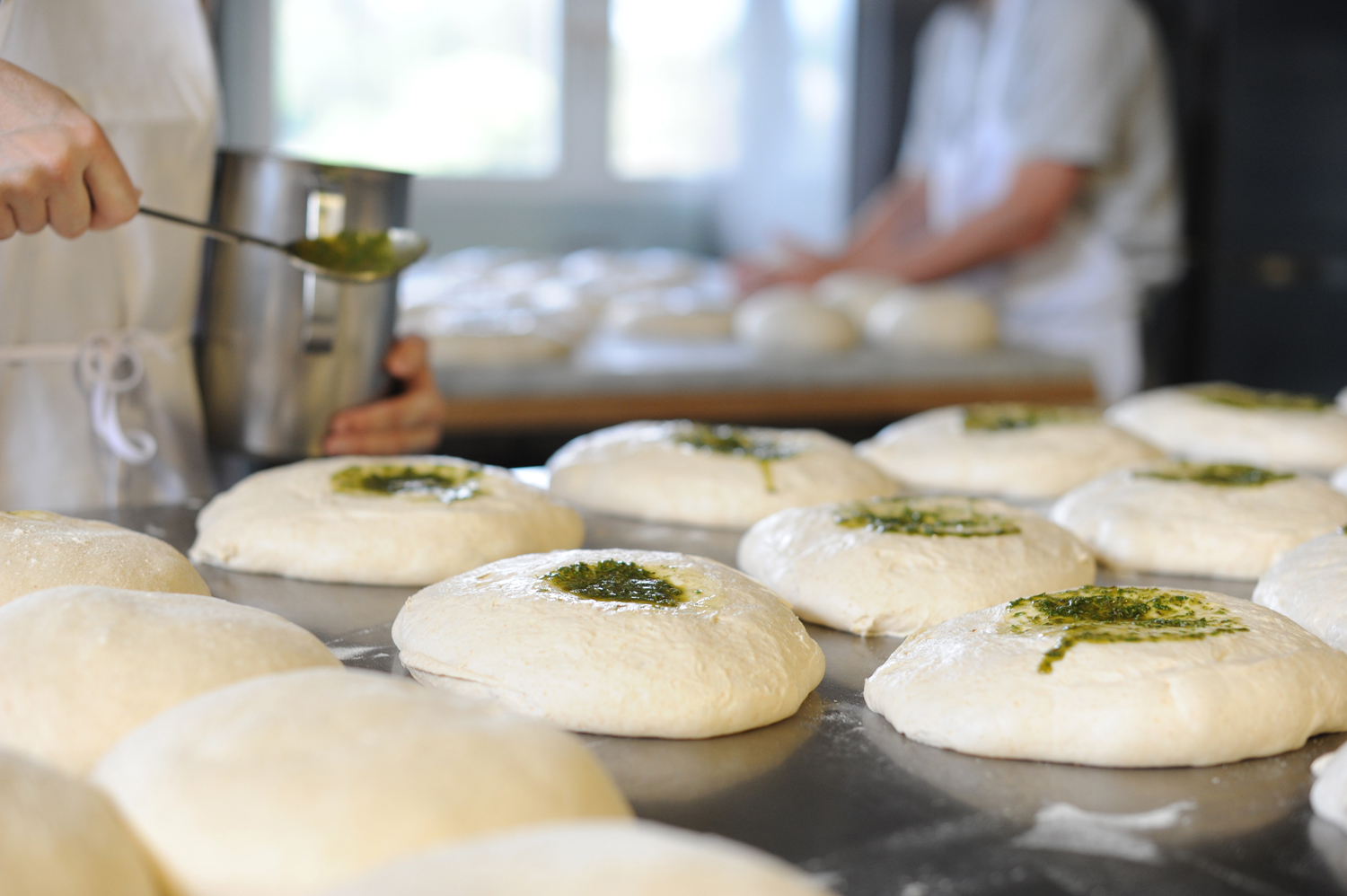
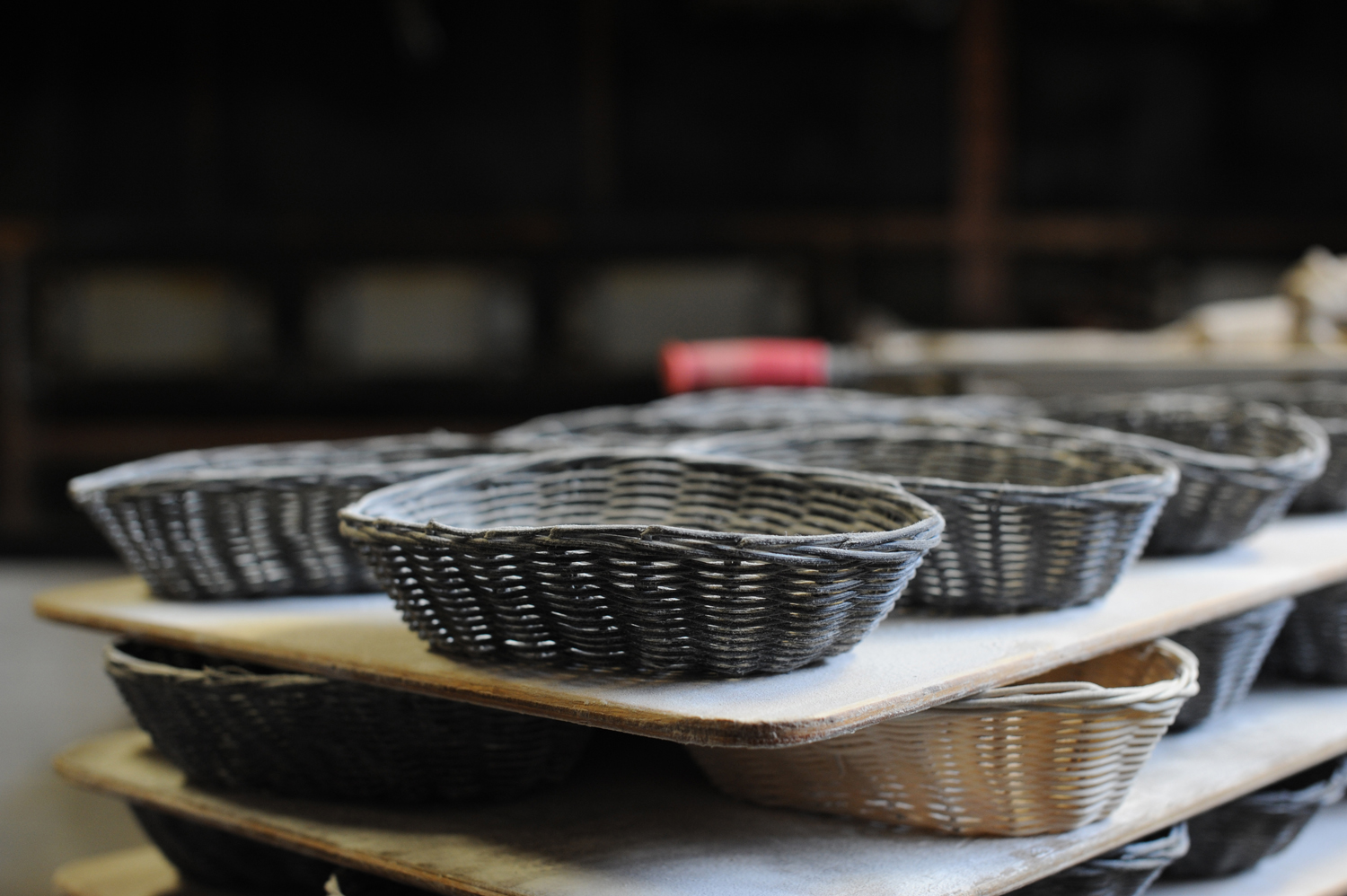




 10 Sourdough tips for beginners
10 Sourdough tips for beginners
Great story. I have always told my customers that I don’t like the word sourdough. I think it may turn away some folks who would love the bread. It isn’t sour!
JD
So many things seem to ring bells with so many of us…not least the drive to share this love of this transformative way of baking…
She sounds to be an amazing lady
Thanks for transporting me to wonderland!
This is just what I needed before bedtime last night – a charming and uplifting story. I savoured every word and felt immediately transported to an idyllic place. I didn’t want to stop reading. As someone who loves baking and is totally fascinated with sourdough; I can relate to the amazement that three simple ingredients can produce delicious and nutritious bread. Kathleen reminds me of you Vanessa, “happy to share her recipes and starter”. Thank you Vanessa for such a lovely article.
A wonderfully evocative and uplifting article Vanessa.
Stunning. Thank you. The part about ‘sourdough’not being the best word is spot on. People get the whole shared bread thing at a molecular/spiritual level (your choice). Real disappointment is a cow pat delivered when you need a treat for a friend. Been there. Thankfully increasingly rarely. Real joy is converting another ibs victim to fermented bread. Thanks d
What a lovely and evocative article. One part in particular rang very true.
“Without the fermentation, the flavour isn’t adjustable which means you just get a flat, one-dimensional taste, but as soon as you have something that’s naturally fermented it brings out all the different complexities in the flavour.”
Until I discovered sourdough I always used a breadmaker to produce the loaves for my sandwiches for work – and still do when I realise the night before that I haven’t got anything for the next morning! Recently I have been using Wessex Mill’s six-seeded flour in this and producing perfectly acceptable loaves, although nothing special.
A couple of days ago I used this flour for a sourdough loaf, 75% hydration – and the result was stunning. Amazing flavours brought out by the slow fermentation, hard to believe this was made from the same basic ingredient.
The wonders of sourdough!